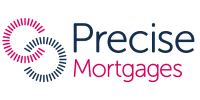Buy to let remortgages

Remortgage
Are you looking to remortgage your home? If so, you must understand the process and determine if remortgaging is right for you. To help you with the decision-making process, we have created a comprehensive guide that outlines all the steps involved in remortgaging. In addition, our guide will provide insight into the various benefits of remortgaging and how to go through the process smoothly.
- Remortgaging is a great way to make the most of your current property’s equity.
- It allows you access to the money you have tied up in your property.
- With a remortgage, you could even consolidate your debts.
- If you remortgage to another lender, you may have access to a lower interest rate and reduce your monthly payments.
- Alternatively, you could take advantage of the current lender’s switching process.
Whatever your financial goal, remortgaging could be the right solution for you.
We have compiled an extensive guide to enable you to make an informed choice about whether a remortgage is right for you. Our guide covers every aspect of remortgaging, from preparation to the things you should consider when selecting a new lender. Also, we provide valuable advice and guidance to help with your mortgage journey. Whatever your financial goals are, our guide can help you navigate the remortgaging process confidently. Start exploring today!
What is a Remortgage
A remortgage is where a homeowner takes out a new mortgage on their property, replacing their current loan agreement with one from a different lender. This typically happens if the mortgage borrower wants to switch lenders or take advantage of better terms than those offered by their existing lender.
Sometimes, remortgaging can free up cash to fund home improvements, debt consolidation, or other investments.
The remortgaging process involves evaluating your finances, researching lenders and loan types, completing paperwork, and closing on the new loan.
Why Remortgage?
There are many reasons to consider remortgaging. One of the primary benefits of remortgaging is that it can give you access to more money or lower monthly payments. In addition, by switching lenders and taking advantage of better interest rates, you could save thousands of pounds over the loan term.
Additionally, remortgaging can free up cash from the equity in your home to cover other expenses or invest in future opportunities. It is essential to weigh the pros and cons when considering this type of transaction.
You need to factor in the fees you will pay to the new lender and any broker fees that apply. That said, for many homeowners, remortgaging remains the most cost-effective option.
Benefits Of Speaking To A Buy To Let Mortgage Advisor
We Consider Your Circumstances
We take the time to understand your individual circumstances. Whether this is your first investment property or you are adding to your portfolio, we’ll review your requirements and recommend the most suitable buy to let mortgage.
We Are On Your Side
We work for you not the lender and will act solely in your best interests. You can therefore be confident that the buy to let mortgage we recommend will be the best available product to suit your circumstances as an investor.
We Do The Hard Work For You
At Your Mortgage Options we leave no stone unturned in our expensive market research when it comes to buy to let mortgages. We also handle the whole process end to end including filling your application form.
We have access to 180+ Lenders
With so many options available, only looking at deals from one lender means you’re unlikely to end up making the best possible choice. Our buy to let mortgage advisors have access to 1000s of product, including products not available from high street lenders.
Remortgage
What are the Benefits of Remortgaging?
Remortgaging can provide numerous benefits. By switching to a more competitive loan rate, a remortgage can help cut down on monthly payments and save on the interest that accrues over the entire term of the mortgage. Remortgaging could also offer access to equity in your home, allowing you to use the funds for other financial aspirations or investments.
Here are some of the benefits of remortgaging:
1. Lower interest rates:
Remortgaging can help you save money over the life of your loan by taking advantage of lower interest rates offered by lenders. This can result in significant savings for a homeowner and could make monthly payments far more manageable
2. Access to equity:
When you remortgage, you can free up some of the equity in your home to use for other financial commitments or to carry out home improvements.
3. Consolidate debts:
If you have other high-interest loans such as credit cards, remortgaging can help you consolidate those into one loan with a lower interest rate, making payments more manageable and reducing the overall debt quicker
4. Reduce the term of your loan:
Depending on affordability, you could take the mortgage over a shorter term. This will save on the amount of interest you pay overall.
Remortgaging can be a great way to save money and access additional funds, but weighing the potential benefits and drawbacks of changing lenders is essential. It’s also a good idea to speak with a financial advisor or mortgage broker before making any decisions.
How Does Remortgage Work
Remortgaging involves evaluating your finances and researching different lenders and loan types to obtain a loan with more competitive terms. The borrower must complete the necessary paperwork, provide the required documents, and close on the new loan.
Depending on which lender you choose, there may be additional costs associated with remortgaging, for example, exit fees, upfront lender fees, and broker fees. Therefore, reviewing these carefully before proceeding with a remortgage is essential.
Any outstanding balance on the existing loan must be factored into the cost calculation. With any applicable early repayment charges, this balance must be cleared before the new loan is set up.
When Can You Remortgage?
The right time to remortgage is when you can get a better interest rate than the one you are currently paying. This could mean that either market interest rates have been reduced or that another lender offers more competitive terms for your circumstances. Additionally, if your financial situation has improved since taking out your initial mortgage loan, this could help you secure a better rate.
Finally, a remortgage could be an option if you want to access the equity in your home or consolidate any debts. Ultimately, it is essential to research and compares different options available before deciding on the ideal course of action.
Can I Remortgage Early?
It is possible to remortgage before the end of your loan term; however, this can often involve additional costs and fees. Depending on your lender, you may be required to pay an early repayment fee or a penalty for switching lenders before the end of your loan term.
If you’re fortunate enough to have funds put aside, you may wish to clear some of the balance off before you take the loan to another lender. It’s worth speaking with a financial advisor or mortgage broker in the first instance before making any concrete decisions.
Mortgage Advice..
Thinking of getting a mortgage? Our experienced team of skilled mortgage advisers are here to offer the essential guidance you require. Relying on our comprehensive understanding of the mortgage market, we’ll ensure you secure the perfect mortgage to suit your specific situation.

Remortgage Process
Remortgaging usually takes around 4 – 8 weeks to complete, the timeline is dependent upon your circumstances, the lender’s process, and the conveyancing process – this seems to be taking longer nowadays, especially where searches reveal hidden complexities with the property.
The journey begins with your broker.
They will source the most competitive rate, then apply to the most suitable lender. You will be asked to provide evidence of your income, any existing debts, and other financial commitments to support your application. Once the lender’s surveyor has conducted a valuation of your property, the application will go to offer.
In most cases, mortgage offers are valid for three months, although it can be up to six months. If you indicate that you’re happy to proceed, the legal representatives will pick things up from there and carry out the necessary searches with the land registry.

Remortgage Advice
- Start by considering your reasons for remortgaging and ascertain your available options.
- Engage the help of a professional adviser – they will calculate the viability of a remortgage versus a product transfer with your existing lender.
- Don’t forget to check if any early repayment charges apply – of course, it may be in your interest to pay these and then move on to a better rate. Again, your broker will help calculate the cost-effectiveness of early coming out of the tie-in period.
- Remember to read all documents carefully and seek legal advice, if necessary, before agreeing to any mortgage terms or conditions.
- Finally, ensure you keep up with the monthly payments – missing payments will be detrimental to your credit file and could ultimately lead to repossessing your home.
Final Thought
Remortgaging is a great way to save money on your mortgage and take advantage of competitive rates. However, it’s essential to be aware of the process and costs involved before you make any decisions. Taking professional advice from an experienced mortgage adviser can help you navigate the complexities of a remortgage and ensure that you get the right possible deal to suit your needs. When done correctly, you are remortgaging can be a worthwhile and rewarding exercise.
FAQs: Remortgage
Most frequent questions and answers about Remortgage
If you’re borrowing more on your existing mortgage or switching products, with the same lender (known as a product transfer) then there are no legal charges involved. However, if you move to a new rate or a different deal with your current lender, or move to an entirely different lender, then you will need to use a solicitor or conveyancer. You can use the lender’s conveyancer if this service is included with your chosen product, or you can appoint your own.
When you remortgage, your existing mortgage will be replaced with a new one. It may involve changing lenders, or simply switching to a different deal with your current lender. Your new mortgage can usually offer more favourable terms such as a lower interest rate or more flexibility.
Yes, it is possible to remortgage with blemishes on your credit file. However, you may have difficulty finding a lender, willing to offer favourable terms. It’s also likely that the interest rate will be higher.
Having a poor credit history doesn’t necessarily mean that you won’t get a mortgage – many specialist lenders assess on a case-by-case basis.
Contact a Synergy Fianacial broker in the first instance if you’re concerned about your credit history.
It is possible to remortgage and pay off the debt by borrowing more, if there is sufficient equity in the property. It pays to explore all options before taking additional borrowing to consolidate your debt – after all this would mean taking the debt over a longer period in line with the chosen mortgage term.
The funds from the remortgage loan are released and your existing mortgage is paid off in full. The new lender then becomes responsible for collecting future payments under the new agreement. The new deal will become effective from the first monthly payment.
No, a deposit is not required to remortgage. In most cases, remortgaging can be done without having to access any savings. Instead, you can use the equity that has built up in your property over time.
Our Lenders:










